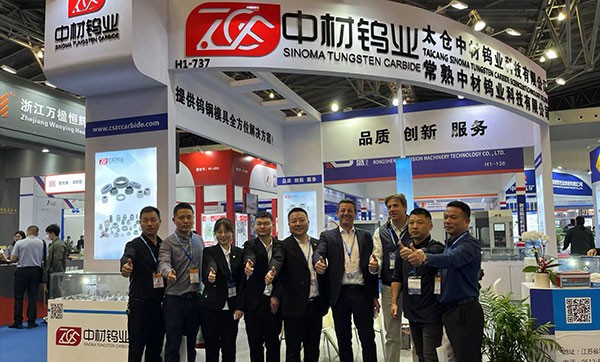In the realm of precision manufacturing, the selection of appropriate materials for molds is paramount to achieving high-quality, reliable, and efficient production processes. Among the various materials available, tungsten carbide has emerged as a superior choice for molds due to its exceptional properties. This article explores the numerous advantages of using tungsten carbide molds in precision manufacturing, highlighting why this material is favored across various industries.
One of the primary advantages of tungsten carbide molds is their remarkable hardness. Tungsten carbide is significantly harder than traditional steel molds, often measuring around 9 on the Mohs hardness scale. This exceptional hardness translates to superior wear resistance, allowing tungsten carbide molds to withstand the rigors of repetitive manufacturing processes without significant degradation. Consequently, these molds offer a longer lifespan, reducing the frequency of replacements and downtime in production lines.
The durability of tungsten carbide molds is another critical advantage. Due to their robust nature, these molds can endure high-pressure environments and abrasive conditions without suffering from deformation or cracking. This durability ensures consistent performance over extended periods, providing manufacturers with reliable tools that maintain their precision and quality throughout their service life. The longevity of tungsten carbide molds contributes to cost savings by minimizing the need for frequent replacements and repairs.
Tungsten carbide exhibits excellent thermal conductivity, which is beneficial in precision manufacturing processes that involve high temperatures. This property enables efficient heat dissipation during operations, reducing the risk of thermal damage to the molds and ensuring stable performance. The ability to manage heat effectively helps in maintaining the dimensional accuracy of the manufactured components, a critical aspect in precision manufacturing where even minor deviations can lead to significant issues.
Precision manufacturing demands molds that can produce components with tight tolerances and consistent dimensions. Tungsten carbide molds excel in this regard due to their high dimensional stability. The material's resistance to thermal expansion and its inherent strength ensure that the molds retain their shape and accuracy even under varying temperatures and mechanical stresses. This stability is crucial for producing high-precision parts that meet stringent quality standards.
In many manufacturing environments, molds are exposed to corrosive substances and chemicals that can degrade traditional materials. Tungsten carbide's resistance to corrosion and chemical wear makes it an ideal choice for molds used in such conditions. This resistance extends the life of the molds and maintains their performance, ensuring that they continue to produce high-quality components without contamination or deterioration caused by chemical exposure.
The versatility of tungsten carbide molds is evident in their wide range of applications across various industries. They are commonly used in the production of automotive parts, aerospace components, electronic devices, and medical instruments, among others. The ability to handle diverse materials, from metals to plastics, further underscores their adaptability and usefulness in different manufacturing processes. This versatility makes tungsten carbide molds a valuable asset for manufacturers seeking reliable solutions for complex and varied production needs.
While tungsten carbide molds may have a higher initial cost compared to traditional steel molds, their cost-effectiveness over time is undeniable. The extended lifespan, reduced maintenance requirements, and consistent performance contribute to lower overall operational costs. Manufacturers benefit from decreased downtime, fewer replacements, and enhanced productivity, ultimately leading to significant cost savings in the long run.
Tungsten carbide molds offer a myriad of advantages in precision manufacturing, making them a preferred choice for industries seeking high-quality, reliable, and efficient production tools. Their exceptional hardness, durability, thermal conductivity, and resistance to wear, corrosion, and chemicals ensure superior performance and longevity. Additionally, their precision and versatility across various applications make them invaluable assets in achieving consistent, high-quality outputs. As manufacturing processes continue to evolve and demand greater accuracy and efficiency, tungsten carbide molds stand out as a robust and cost-effective solution, driving advancements in precision manufacturing.




